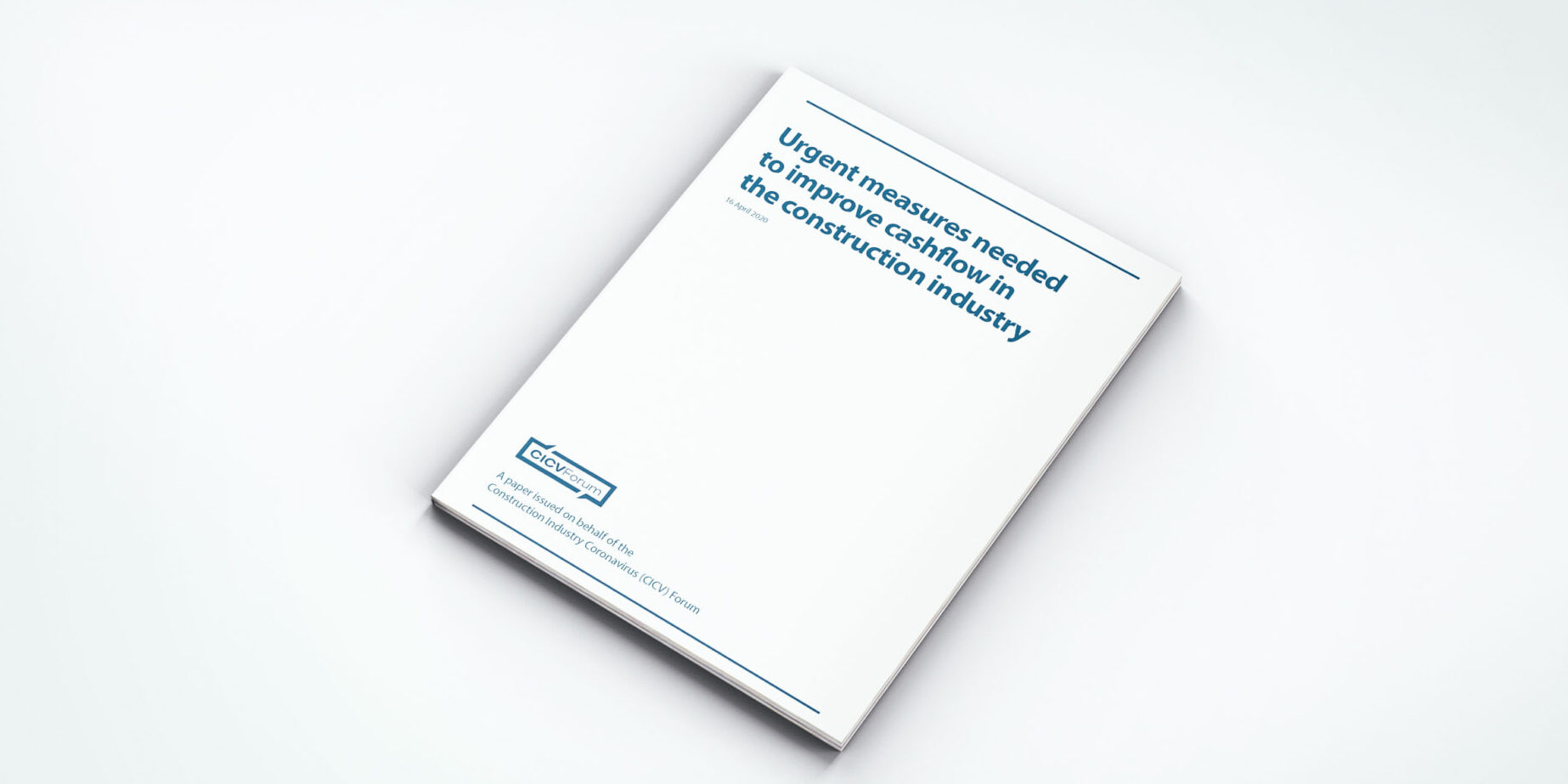
The CICV Forum has presented Holyrood with a paper of comprehensive recommendations to ease the cashflow crisis as the group continues fighting to save Scotland’s construction sector during the COVID-19 pandemic.
The paper, which outlines a series of urgently-needed actions to improve liquidity in the industry, will go to both public and private sector clients, while the Scottish Government will be kept informed and its support sought.
The most recent initiative by the Forum reinforces calls to the industry to ensure that payments are made on time to safeguard the sector’s future.
And it follows the revelation in a major survey in mid-April that cashflow has completely dried up for nearly 80% of firms in the sector and that that close to two thirds of businesses are being hit by late payments.
The paper, agreed by all members of the Forum, is aimed at assisting the supply chain through the months ahead to enable construction businesses to survive. It proposes:
- An agreement of an effective Final Account between contractors and employers, as well as between public bodies and design teams, on the value of work completed by March 30 this year and compromise to resolve disputed issues.
- Reduction in the payment cycle time frame for public bodies and agreed cash flow forecasts on recommencement.
- Involvement of the whole supply chain.
- Alternative methods of dispute resolution.
- Dealing with liquidated and ascertained damages at Final Account stage.
- The release of 50% of retentions held by the public sector, and of sector-wide historic retentions. Also, a retentions embargo for six months.
- The reduction of PBA thresholds and the use of existing low-cost adjudication schemes.
Fiona Hodgson, Chief Executive of Forum member SNIPEF, the plumbing and heating employers association, said: “The construction sector as a whole is currently facing extraordinary difficulties, which will only be exacerbated if companies and public bodies take unnecessary time to pay their suppliers.
“This paper outlines a multi-pronged strategy to improve cashflow and introduce some creative thinking on addressing what lies ahead.”
Ms Hodgson pointed out that the importance of the construction industry to Scotland was illustrated by the fact that it employs more than 175,000 people, or around 10% of the total workforce.
It contributes £21.5 billion to the country’s GDP and acts as a strong economic multiplier, with £2.94 generated for every £1 spent on construction output. Vitally for the industry’s future, it also supports around 10,000 apprentices.
Grahame Barn, Chief Executive of Forum member CECA Scotland, added: “Just as the Government has rightly stepped in to inject cash into the economy, contractors and clients must play their part by keeping cash circulating through the sector.
“The construction industry needs to emerge from this crisis in the best shape it can and the best way of achieving this is for everyone to pay our suppliers in full and on time.”
The CICV Forum has already played a major role in clarifying conflicting information for the sector and issuing practical guidance for companies, clients and employees. It has now established a series of influential sub-groups dealing with mission-critical aspects such as Health and Safety, Skills, Communication and Future Planning.

Another major builder goes into administration in CBC leaving their extensive supply chain more debt to compound the current situation and they won’t be the last.
The Government are hemorrhaging cash trying their best to help businesses, is this not the ideal opportunity to push through parliament two things that would help us contractors on a massive scale with immediate effect and give us financial certainty going forward without any cost outlay to the Government at all by forcing a legal requirement to :
Reduce the ever extending payment terms throughout the supply chain which currently average 60 days for sub-sub contractors on paper often stretching to 90 days. Why can we not all pay each other and wholesalers in 14 days ? Could emergency legislation not be put in place to override current contract payment terms?
The other obvious one is to abolish retentions and replace them with the sensible system SELECT have been working tirelessly to achieve over recent years and support legislation to ring-fence the monies. Could emergency legislation not be put in place to force the release in the industry of all current overdue retentions ?